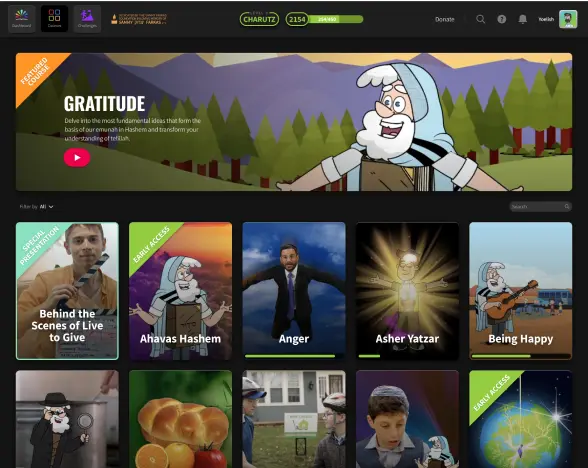
Judaism’s Unique View on the World: From Entitlement to Empowerment

Judaism’s Unique View on the World: From Entitlement to Empowerment
Have you ever caught yourself saying, “That’s not fair! I deserve better!”? In a world that constantly emphasizes rights—from human rights to labor rights, from what society owes us to the endless scroll of what we're supposedly entitled to—it’s easy to get stuck in a mindset of waiting for the world to serve us. But what if there’s a healthier, more empowering approach?
The Jewish Shift: From Rights to Responsibilities
Modern society is obsessed with rights. The language of entitlement fills our news feeds: constitutional rights, student rights, consumer rights—the list is endless! Yet, in the Torah and classical Jewish teachings, there is hardly a word for “rights.” Instead, our tradition asks: What can I give?
The Torah doesn’t present a Bill of Rights; it gives us a Code of Responsibilities.
Facing the World: Ancient Wisdom Meets Modern Psychology
This duty-focused mindset isn’t just ancient philosophy. Research in positive psychology reveals that people who feel their lives have meaning and purpose are happier and more resilient. Dr. Adam Grant’s national surveys show most people want their jobs—and lives—to matter. Viktor Frankl, who survived the horrors of a concentration camp, noted that it wasn’t pleasure or power that enabled people to endure suffering, but a sense of purpose.
Judaism teaches: “What issue can I fix? What problem can I solve? What difference can I make?” This approach isn’t about waiting for your personal happiness package to arrive; it’s about building meaning by taking responsibility for the world around you.
Everyday Scenarios: A New Lens on Life
- At home: Instead of “It’s not my turn to do the dishes,” try, “How can I contribute to a peaceful, happy home?”
- At work or school: Instead of “Why isn’t my effort being noticed?” ask, “How can I help my team succeed and grow?”
- In the community: Instead of “No one ever invites me,” shift to, “How can I create opportunities for connection and kindness?”
Action Steps: Bringing Judaism’s Worldview to Life
- Daily Reflection: Each morning, ask yourself, “What good can I do today?” Jot down one concrete way to help or uplift another person.
- Embrace Small Acts: Don’t wait for big opportunities. Smile at someone, hold open a door, send a kind message—simple things add up.
- Transform Complaints into Commitments: Next time you feel a complaint rising, translate it into an action. Not “Why does this problem exist?” but “What can I do about it?”
- Share Purpose: Model this mindset. When friends or family focus on what’s missing, gently redirect to what you—and they—can contribute.
Everything Connects: Why This Mindset Matters
Jewish tradition teaches that the world is not finished. We are here to perfect it, together. Like a baker turning wheat into bread or a tailor turning flax into cloth, each of us is invited to help the world become more whole. God left room for us—for our actions to matter.
Psychological research and Jewish ethics agree: Lives built on purpose and giving aren’t just more meaningful—they’re happier, too.
Ready to Flip the Script?
If you’re tired of “it’s not fair!” or “life owes me,” try out this ancient yet modern mindset. Start each day asking how you can make a difference. You might discover just how empowered—and joyful—life can be.
Want more motivation and practical wisdom, plus access to 100% clean, 100% fun Torah videos, games, and challenges? Sign up FREE at TorahLive.com/signup and start your journey to positive change today!
